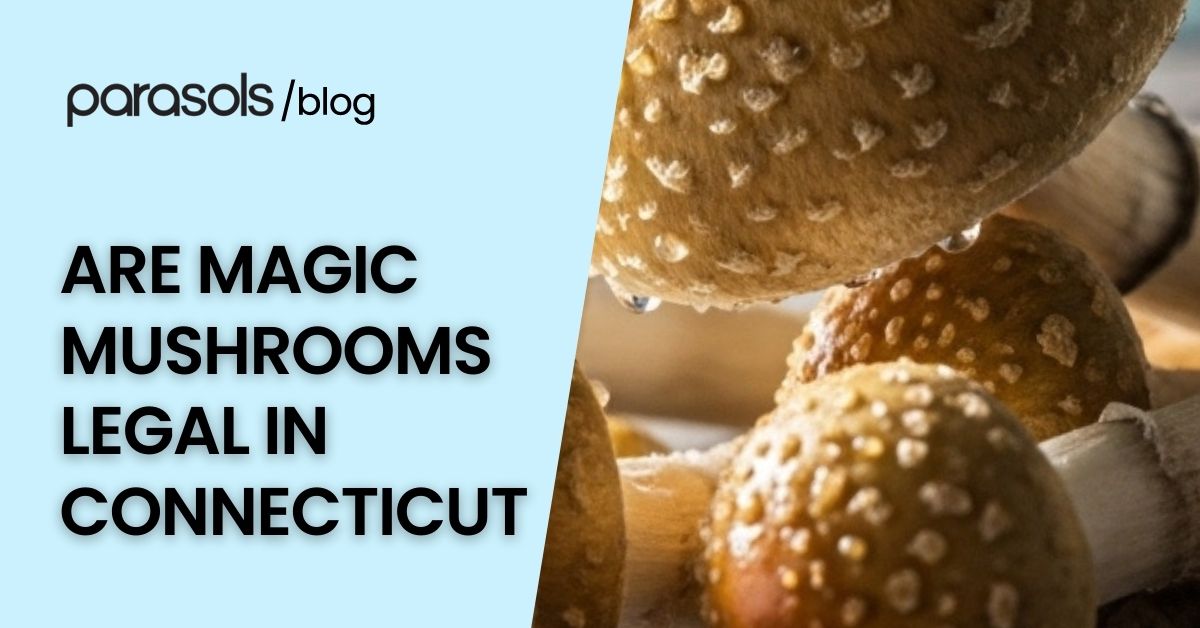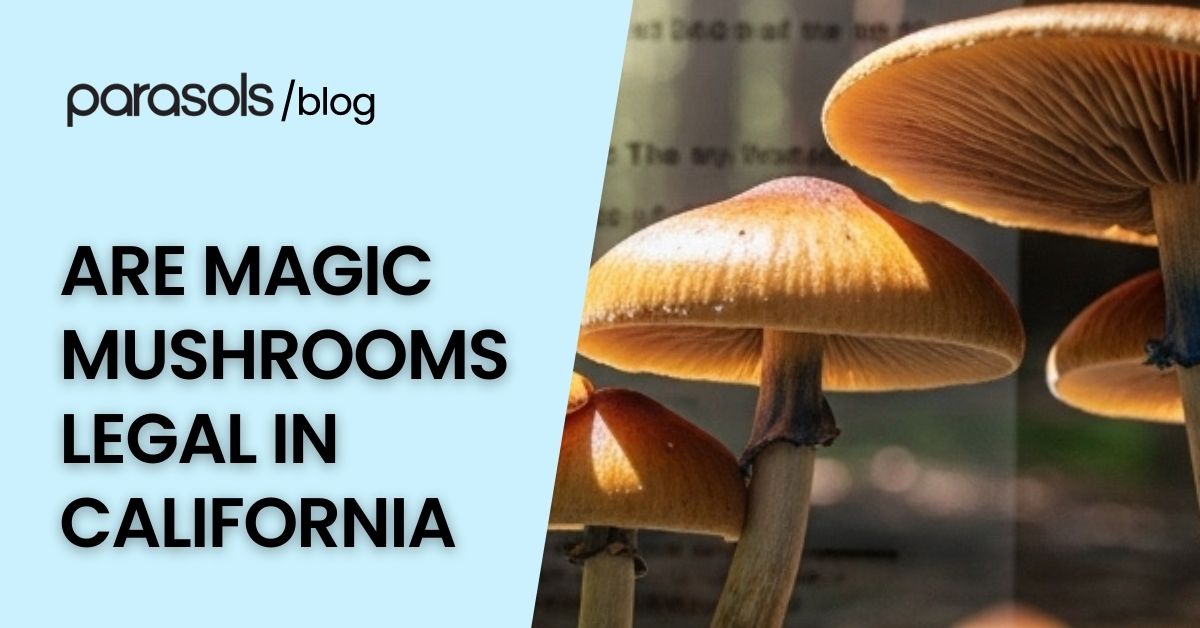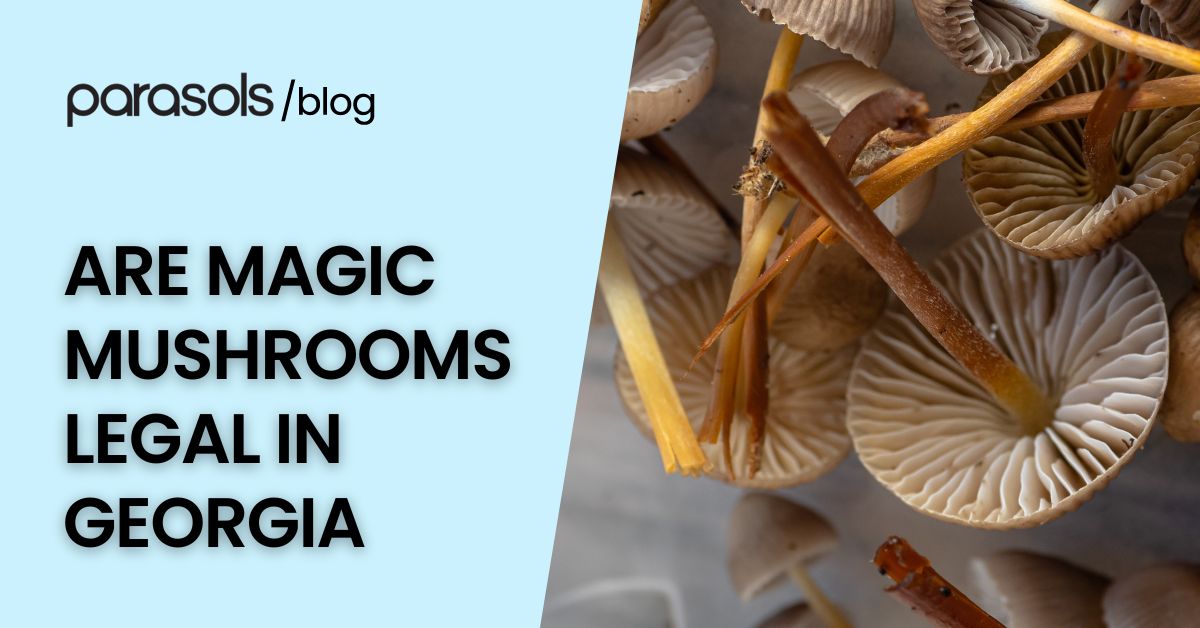These days, it’s not unusual to hear someone in Connecticut bring up magic mushrooms — not to talk about a party, but as part of a serious discussion about mental health and treatment for various mental illnesses. From families coping with anxiety disorders to veterans treating PTSD, more people are asking whether psilocybin mushrooms — once written off as just another hallucinogenic substance — might have real therapeutic potential.
But with that hope comes plenty of hesitation. Lawmakers, health advocates, and communities are still debating the legal status of psilocybin, whether to decriminalize possession, and what legalizing psilocybin for medicinal purposes would actually look like under state law and federal law. The conversation is growing, but so are the questions.
Key Takeaways
- Psilocybin remains a Schedule I controlled substance under Connecticut law.
- A 2025 bill to reduce penalties for small possession passed the House but failed in the Senate.
- Current laws impose fines, jail time, and felony charges for possession or cultivation.
- Psilocybin spores are legal to own but illegal to grow into psychoactive mushrooms.
- No cities or counties in Connecticut have decriminalized magic mushrooms.
- Legal mental health alternatives include ketamine therapy, mindfulness, and TMS.
Are Psilocybin Mushrooms Legal in Connecticut?
As of July 2025, psilocybin mushrooms remain illegal in Connecticut under both state law and federal law. Earlier this year, the Connecticut House passed a bill seeking to decriminalize possession of small amounts — less than half an ounce — so first-time offenders would face only a $150 fine instead of harsh penalties or jail time. But the legislation stalled in the Judiciary Committee before the Senate session ended, leaving the existing law in place.
For now, psilocybin is still classified as a controlled substance, and possessing psilocybin — whether for personal use or medicinal purposes — can lead to criminal penalties. Even with growing interest in psilocybin-assisted therapy for treating PTSD, anxiety disorders, and other mental illnesses, lawmakers have yet to legalize psilocybin or formally decriminalize possession.
Laws Surrounding Magic Mushrooms in Connecticut

In Connecticut, the legal status of magic mushrooms — especially psilocybin mushrooms — is caught between old-school drug laws and new conversations about mental health treatment. For now, they’re still considered a controlled substance under state law, but interest in their therapeutic potential is growing fast.
From discussions in the Judiciary Committee to proposals in the Connecticut House, lawmakers and advocates are starting to explore what it might mean to decriminalize psilocybin or even legalize psilocybin for certain medicinal purposes.
Current Legal Status
As of now, psilocybin is classified as a Schedule I controlled substance in Connecticut. That puts it in the same category as heroin and cocaine — substances the state considers to have no accepted medical use and a high potential for abuse.
Under existing law, possession of psilocybin, selling psilocybin, or distributing hallucinogenic mushrooms is illegal. Even small amounts of psilocybin mushrooms can bring criminal penalties, and dealing psilocybin or possessing larger quantities can mean harsher sentences, including up to five years for a first offense and even life imprisonment for major trafficking cases.
Medical and Therapeutic Considerations
Despite harsh penalties, there’s growing momentum to learn psilocybin’s therapeutic potential. Research suggests it could help treat various mental illnesses, including anxiety disorders, depression, and PTSD.
Lawmakers have floated ideas for pilot programs that would allow psilocybin-assisted therapy in a controlled setting, giving people access to effective therapeutic uses when traditional medical treatment hasn’t worked.
Supporters see this as a step toward removing psilocybin from the most restrictive category of substances and opening the door for safe, regulated medical use.
Federal vs. State Law
Under federal law, psilocybin is still a Schedule I substance, making it illegal across the country. Even if Connecticut were to decriminalize possession or legalize psilocybin for medicinal purposes, federal law would still apply.
That said, in states moving toward reform, federal enforcement for personal use or small amounts is rare — though the risk never fully disappears.
Magic Mushroom Alternatives in Connecticut
Even though psilocybin mushrooms are still illegal in Connecticut — and possession of psilocybin can lead to serious criminal penalties — there are plenty of legal, evidence-based ways to study similar mental health benefits without risking a run-in with the law.
Whether you’re interested in something guided by a licensed provider or a more holistic, self-led approach, these options can offer real support for people dealing with anxiety disorders, PTSD, depression, and other mental illnesses:
- Ketamine-assisted psychotherapy – Available in licensed clinics across the state, ketamine is used under medical supervision to treat depression, PTSD, and other conditions. While it’s not a classic hallucinogenic substance, many people report fast, meaningful relief.
- MDMA-assisted therapy – Not available by prescription yet, but some federally approved clinical trials are open to Connecticut residents, especially for treating PTSD. These studies are tightly regulated and offer a legal path to understand the therapeutic potential of certain psychedelic substances.
- Art Pharmacy program – A unique state initiative where providers can “prescribe” cultural experiences like museum visits or live performances to boost mood and reduce stress — a creative twist on mental health treatment without involving any controlled substance.
- Mindfulness and meditation – Practices like yoga, breathwork, and meditation are widely available and help with emotional regulation, making them a safe and legal alternative to psilocybin-assisted therapy.
- Somatic therapies – Trauma-focused, body-based treatments that use movement and awareness to release emotional pain, offering a therapeutic use that doesn’t involve hallucinogenic mushrooms.
- Transcranial Magnetic Stimulation (TMS) – A non-invasive, FDA-approved option for major depression that alters brain activity in ways comparable to some effects of psilocybin therapy.
- Virtual Reality (VR) therapy – Immersive, calming environments designed to reduce stress and anxiety, mimicking some introspective benefits people seek from psychedelic mushrooms without breaking Connecticut’s strict drug laws.
Final Thoughts

Psilocybin mushrooms remain illegal in Connecticut, and current laws carry serious penalties for possession or use. Still, interest in their therapeutic potential continues to spark debate and inspire reform proposals.
While the legal landscape develops, you don’t have to wait to get help. There are many legal, evidence-based therapies already available in Connecticut that can support mental health and offer real hope. If you’re ready to know your options, connect with a licensed provider to learn what’s available and find an approach that fits your needs.
Frequently Asked Questions
Can you legally buy psilocybin mushroom spores in Connecticut?
Yes. Psilocybin mushroom spores can be purchased legally in Connecticut for research or educational purposes. But cultivating those spores into hallucinogenic mushrooms that contain psilocybin is illegal under state law and federal law, and can bring serious criminal penalties.
Have any Connecticut cities or counties decriminalized magic mushrooms?
No. Unlike certain cities in other states, no city or county in Connecticut has taken steps to decriminalize possession of psilocybin or change how psilocybin-related offenses are enforced locally.
Is psilocybin part of Connecticut’s medical marijuana program?
No. Connecticut’s medical marijuana program only covers cannabis-based treatments. Psilocybin and other psychedelic substances are not authorized for medicinal purposes under existing law.
Can therapists or doctors in Connecticut prescribe psilocybin?
No. Psilocybin remains a Schedule I controlled substance at both the state level and the federal level, so healthcare providers cannot prescribe or administer it in clinical practice.
Are psilocybin clinical trials available in Connecticut?
Not at the moment. However, residents may qualify for federally approved research studies in other states or through national academic partnerships researching psilocybin-assisted therapy for various mental illnesses.
Could psilocybin use affect your job or license in Connecticut?
Yes. Testing positive for psilocybin — even outside of work — can lead to disciplinary action, especially in licensed professions or jobs with routine drug screenings. Connecticut has no employment protections for psilocybin use.
Is it legal to use other psychedelics recreationally in Connecticut?
No. LSD, DMT, mescaline, and other hallucinogenic substances are also classified as Schedule I under state law and remain illegal for recreational use, carrying many of the same criminal penalties as possessing psilocybin.



Leave a comment
This site is protected by hCaptcha and the hCaptcha Privacy Policy and Terms of Service apply.